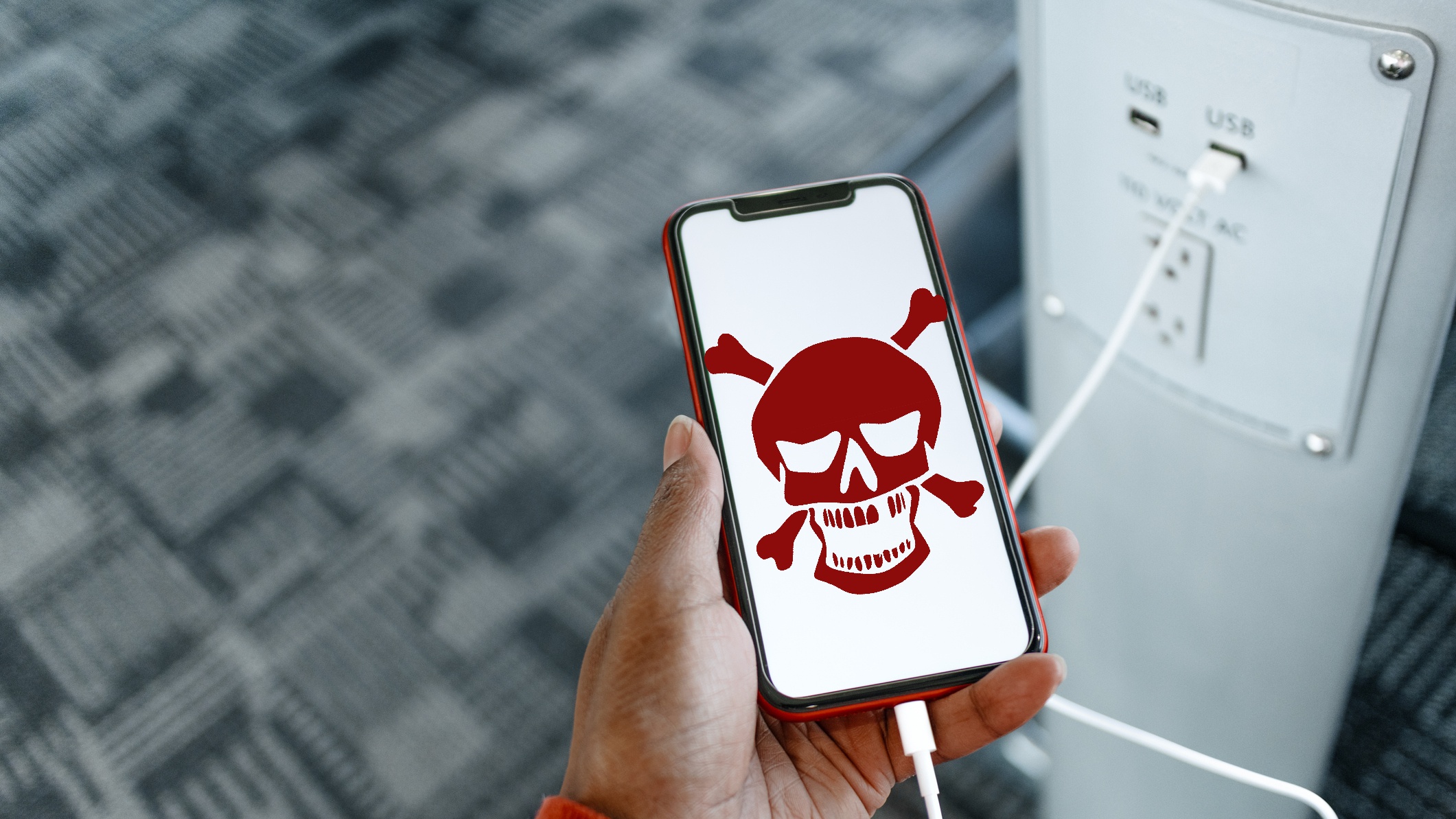Never charge your phone at the airport — 3 nasty things that may happen
Stay away from public charging stations

Sign up to receive The Snapshot, a free special dispatch from Laptop Mag, in your inbox.
You are now subscribed
Your newsletter sign-up was successful
Watch out! You may be tempted to juice up all of your devices at the airport, but you may want to — erm — never do that. Ever. According to the FBI, yes this is the Federal Bureau of Investigation we're talking about here, cybercriminals are hijacking public charging stations to distribute gnarly malware and software that lets them spy on unsuspecting victims.
It's not just public charging stations at airports you should be worried about. All of them should be of concern, whether it's a free charging station at a coffee shop or power-up centers inside hotels and malls.
3 nasty things that may happen if you use an airport charging station
In an April 6 Twitter post, FBI Denver announced a PSA to its 62,000 followers:
"Avoid using free charging stations in airports, hotels or shopping centers. Bad actors have figured out ways to use public USB ports to introduce malware and monitoring software onto devices."
If you choose not to heed the FBI's advice, and a malicious actor lures you into its pre-set traps, the following three nasty things could happen:
1. Your device can get locked. Malware unwittingly downloaded through a compromised USB port can deny you access to your own phone.
2. Your personal data can get exported right into a malicious actor's hands. Your private and sensitive data will get exposed to hackers.
Sign up to receive The Snapshot, a free special dispatch from Laptop Mag, in your inbox.
3. Your passwords and other critical credentials will be revealed. Criminals can sell your information to the dark web, allowing complete strangers to access your online accounts.
This isn't the first time an official institution has warned the masses about infected charging stations. The FCC calls it "juice jacking." In some cases, criminals leave compromised USB cables plugged in at ports, hoping that someone assumes it's their "lucky day," and unfortunately, their phone ends up getting wrecked.
"Fraudsters may even give you infected cables as a promotional gift, according to a New York Times story," the FCC warned.
How to avoid dangers of 'juice jacking'
The FCC recommends using a "charging-only" cable (a cable that prevents data from being sent and received while charging). FBI Denver said that you should bring your own charger, alongside a USB cable, allowing you to use electrical sockets instead of the USB ports found in public charging stations.
Replying to FBI Denver, Twitter user @Island_Dee suggested bringing a power bank (like this one from Anker), charging it at a public station, and then using it to juice your phone.
Twitter user @JosephTheFox warned iPhone users that a strange message will appear if your iOS device is plugged into an infected USB port. "I do not know how it works on other phones, but on an iPhone, you will get a pop-up asking if the port should be allowed to share data. This is a common sign of something wrong (except for computers or other devices) and you should unplug immediately."
As paranoid as I am, I'd avoid using public outlets altogether. Who knows what may be lurking in those sockets? Time to just get the iPhone 14 Pro Max, the longest-lasting phone we've tested in recent years (it lasts more than 13 hours on a charge), and call it a day.
Kimberly Gedeon, holding a Master's degree in International Journalism, launched her career as a journalist for MadameNoire's business beat in 2013. She loved translating stuffy stories about the economy, personal finance and investing into digestible, easy-to-understand, entertaining stories for young women of color. During her time on the business beat, she discovered her passion for tech as she dove into articles about tech entrepreneurship, the Consumer Electronics Show (CES) and the latest tablets. After eight years of freelancing, dabbling in a myriad of beats, she's finally found a home at Laptop Mag that accepts her as the crypto-addicted, virtual reality-loving, investing-focused, tech-fascinated nerd she is. Woot!

